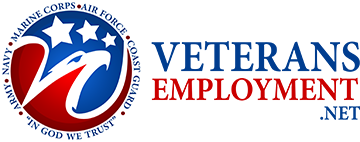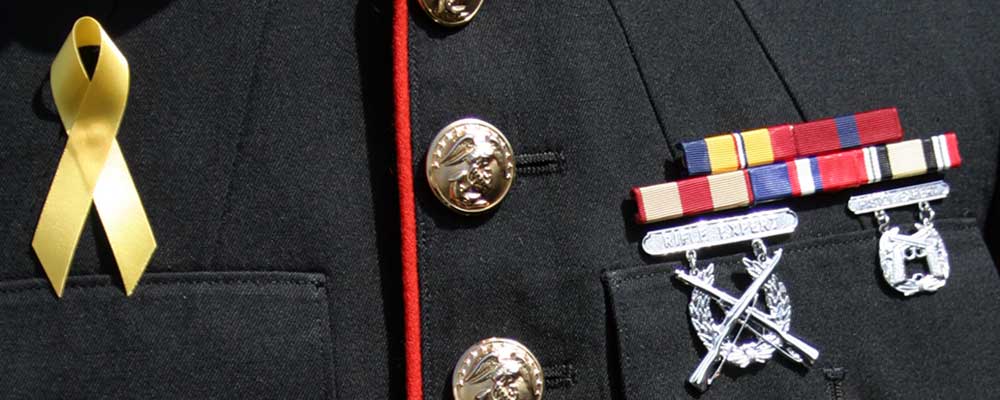Converting Military Skills Into Workforce Skills
It can be a challenge to understand how your military skills convert into workforce skills. It’s very easy to think of your military career in terms of dates, facts, and figures.
But we want you to think outside-the-box and really dig into how your valuable military skills can and do convert to valuable skills in the civilian workforce. It’s not always easy to do this, but with a bit of practice and some guidance from us at Veteran’s Employment, you’ll soon be able to visualize yourself in a civilian career.
Like you, everyone at Veteran’s Employment is a veteran who has gone through the transition to the civilian workforce. Trust in our experience and expertise to help you bridge the gaps in moving to a civilian career.
Remember These Key Military Skills
As part of our commitment to finding employment for veterans, we have thought long and hard about the key military skills that helped us as we transitioned to a civilian career.
While you have specific skills connected to your military career, we want to make sure you don’t overlook these key military skills:
- Your soft skills. Soft skills are often the skills you simply take for granted. You assume everyone has these skills so it’s easy to overlook them. Think of skills such as critical thinking, analysis, decision-making, public speaking, writing, honesty, patience, and being personable. These and many more soft skills can go a long way in helping you secure a civilian job. When writing your resume, cover letter, and preparing for job interviews, take stock of your soft skills.
- Your communication skills. Maybe your military job required you to distill complicated information quickly and easily. Or you were expected to create lengthy reports detailing equipment requirements and resources. Or perhaps your military career had you traveling the world talking with other military and civilian leaders. In other words, you have finally honed and professional communication skills that are a huge asset to any corporate employer. As well, don’t overlook your ability to comfortably communicate with people of different ranks and skill sets – this is a highly transferable skill when navigating the office, board room, or company Christmas party.
- Your ability to be flexible. If there’s one thing you’ve learned, it’s that you’ve got to be ready for anything. This emphasis on being flexible has taught you how to think quickly, to respond and react, and to overcome barriers. Think of how in a civilian environment you can use this core skill to thrive when deadlines are tightened, someone calls in sick, or when you’re asked to go above-and-beyond your normal professional role.Your leadership and teamwork skills. You cannot learn leadership and teamwork skills in the classroom. These critical skills only come with on-the-job experience. When preparing for your job interview, think of times when you’ve had to be a leader and instances where teamwork helped you accomplish a task.
- Your organization and management skills. It’s impossible to thrive in any career without some degree of organizational skills. Think about your early days in the military and how you learned to stay on schedule and to thrive in a new environment. Now think about later on in your military career where you were involved with budgeting, managing other people, or acting as a leader. You know how to organize and manage not only yourself, but others.
- Your technical skills. Depending on the nature of your military career, you might have very advanced technical skills. The good news is that technical aptitude and skills are in very high demand in corporate America. When researching career opportunities think about your range of technical skills and how these can transfer to the civilian workforce – construction management, software development, electrical planning, medical expertise, etc.
Think Of These Key Civilian Career Sectors
It can be very easy to be overwhelmed with the range of opportunities and possibilities available to you in the civilian sector. You can do anything you want but it’s important to recognize where your military skills can convert best in the civilian career sector.
When think about what you want to do with your new civilian life, be sure to research these key civilian career sectors:
- Information technology
- Healthcare
- Project management
- Risk assessment and awareness
- Education
- Engineering
- Planning and logistics
- Communications
Hint: spend some time browsing our jobs for veterans database and you’ll soon get a clear idea of which careers sectors offer you the best opportunities – or you just might discover a civilian career you didn’t even realize existed.
Take advantage of these military skills translators:
- gov – military skills translator
- com – military skills translator
- Company specific such as: Lockheed Martin, Boeing, UPS, Union Pacific (hint: if you’re interested in a specific company, search the company website for military skills translator or in Google type: company name military skills translator)
Preparing For A Civilian Career With Veteran’s Employment
Our focus is on finding employment for veterans – men and women like you who have served Americans and are now looking for new ways to contribute and make positive change. We want you to remember that we understand what you’re going through.
Transitioning to a civilian career, regardless of your military experience is both exciting and intimidating. The more prepared you are, the easier it will be to make this transition. Take advantage of all the opportunities available to you – course work, seminars on transitioning, talking with others who have made a successful career transition, and the transition resources available on our website.
Reach out on the Veteran’s Employment Facebook community page or contact us to talk about your career transition. We are here to help you find the right civilian career.

